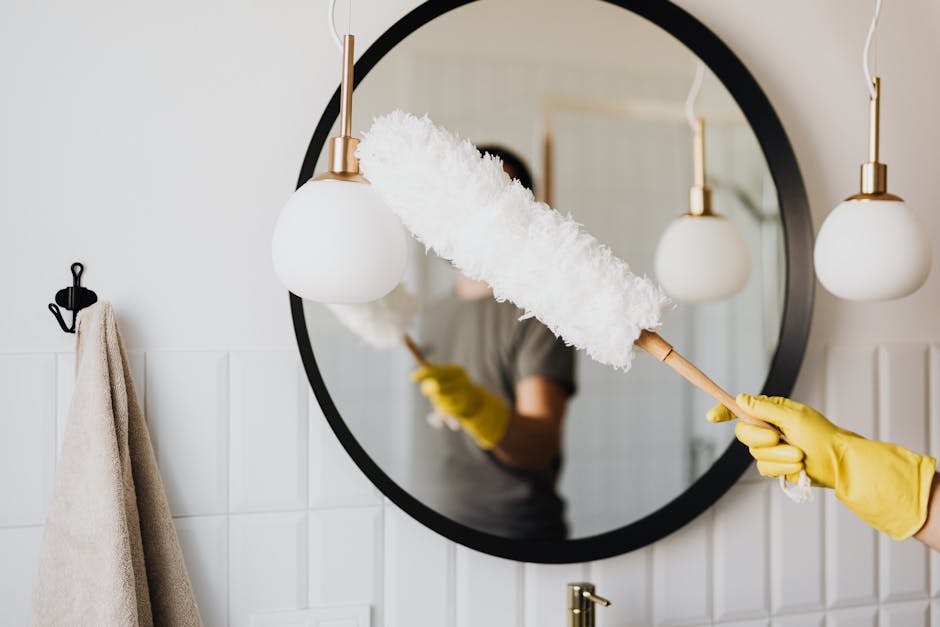Discover the secret to maintaining sparkling clean commercial spaces to impress guests and keep your employees healthy and happy.
Importance of Regular Commercial Cleaning
Regular commercial cleaning is essential for maintaining a professional and inviting environment for customers, clients, and employees. Cleanliness not only creates a positive first impression but also plays a crucial role in enhancing the overall experience within the space. Whether it’s a retail store, office building, or restaurant, cleanliness reflects the professionalism and attention to detail of the business.
In addition to aesthetics, regular commercial cleaning is vital for the health and well-being of everyone who enters the space. By eliminating dust, allergens, and other contaminants, cleaning helps reduce the risk of illnesses and allergies among employees and visitors. A clean environment also boosts morale and productivity, creating a positive atmosphere that supports the success of the business.
Moreover, in today’s competitive market, cleanliness is no longer just a bonus but a necessity. Businesses that prioritize cleanliness stand out from the competition and build a solid reputation for maintaining high standards in all aspects of their operations. Regular cleaning not only safeguards the health of individuals but also protects the brand image and credibility of the business.
By investing in regular commercial cleaning services, businesses demonstrate their commitment to providing a safe, healthy, and pleasant environment for everyone. Professional cleaners have the expertise, tools, and techniques to ensure thorough cleaning that meets industry standards and regulations, giving business owners peace of mind knowing that their commercial spaces are in top condition.
In conclusion, regular commercial cleaning is not just about appearances but about creating a space that promotes well-being, productivity, and success. With the right cleaning schedule in place, businesses can enjoy a range of benefits that extend far beyond just cleanliness.
Factors Influencing Cleaning Frequency
The frequency of commercial cleaning depends on various factors, including the type of business, the size of the space, foot traffic, and specific cleaning needs. For example, high-traffic areas such as restaurants, retail stores, and healthcare facilities may require daily cleaning to ensure cleanliness and safety.
Another factor influencing cleaning frequency is the nature of the business operations. Businesses that handle food, chemicals, or hazardous materials need more frequent and specialized cleaning to maintain hygiene, prevent contamination, and comply with regulations. Understanding the unique cleaning requirements of different industries is essential for determining the right cleaning schedule.
Additionally, the layout and design of the commercial space can impact the cleaning frequency. Areas with heavy equipment, machinery, or sensitive electronic devices may require regular cleaning to prevent dust buildup and maintain optimal working conditions. Proper ventilation, storage practices, and waste management also play a role in determining how often cleaning is needed.
Moreover, seasonal factors such as weather changes, flu seasons, and special events can influence the cleaning frequency of commercial spaces. Businesses may need to adjust their cleaning routines during peak seasons or in response to specific cleanliness challenges to ensure a clean and safe environment for everyone.
In conclusion, the frequency of commercial cleaning should be tailored to the unique needs and circumstances of each business. By considering various factors such as industry requirements, space usage, and environmental conditions, businesses can develop a customized cleaning schedule that maintains cleanliness and hygiene effectively.
Recommended Cleaning Schedule
Developing a recommended cleaning schedule for commercial spaces involves assessing the cleaning needs, setting priorities, and establishing a routine that aligns with the business operations. The first step is to conduct a thorough evaluation of the space to identify high-traffic areas, specific cleaning challenges, and critical cleaning tasks.
Based on the assessment, businesses can create a detailed cleaning checklist that outlines daily, weekly, monthly, and seasonal cleaning tasks to address different aspects of cleanliness. Daily tasks may include vacuuming, dusting, and sanitizing common areas, while weekly tasks may focus on deep cleaning restrooms, kitchens, and other high-use areas.
Furthermore, businesses should work with professional cleaning services to develop a tailored cleaning schedule that meets the unique needs of the space. Professional cleaners can provide expertise, resources, and flexible cleaning options to ensure that the commercial space remains clean, safe, and compliant with industry standards.
Regular communication with cleaning providers is essential for maintaining a consistent and effective cleaning schedule. Businesses should regularly review and update the cleaning plan to accommodate changes in business operations, seasonal demands, or special events that may require additional cleaning attention.
In conclusion, a well-planned and implemented cleaning schedule is key to preserving the cleanliness and functionality of commercial spaces. By prioritizing regular cleaning and working with professional cleaners, businesses can create a positive environment that supports the health, safety, and satisfaction of everyone who interacts with the space.
The Impact of Regular Cleaning on Commercial Spaces
In conclusion, ensuring the cleanliness of your commercial spaces through regular cleaning not only enhances the overall appearance but also contributes to a healthier and more productive environment for all. Embrace the power of professional commercial cleaning services to elevate your space.

